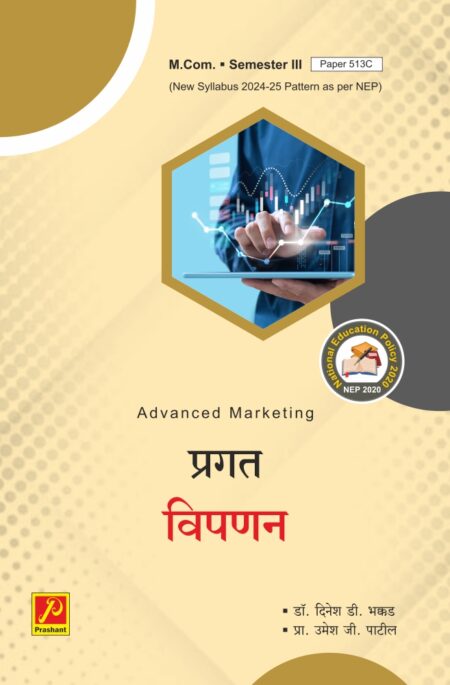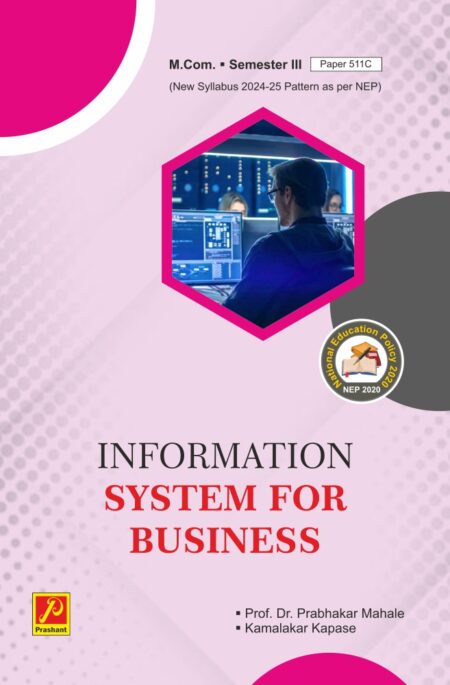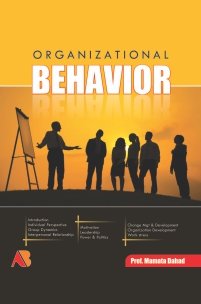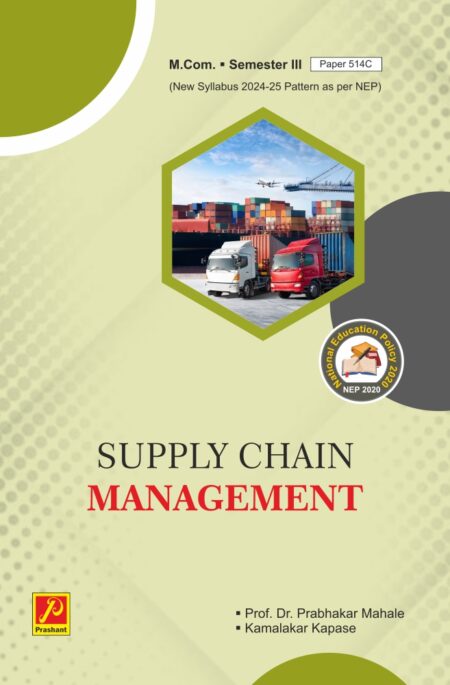Supply Chain Management
Authors:
ISBN:
Rs.195.00
- DESCRIPTION
- INDEX
We must embrace adaptation in accordance with the demands of the present era. Therefore, any change in a subject’s curriculum is a natural progression of development. Knowledge evolves as subjects are taught and learned in diverse ways over time. In light of the adoption of a new syllabus by Kavayitri Bahinabai Chaudhari North Maharashtra University for Second year Master of Commerce students, aligned with the New Education Policy 2020, it is our responsibility to provide them with updated learning materials.
We take great pleasure in introducing the textbook “Supply Chain Management”, designed for M.Com students. This book, structured in a self-learning format, adheres to a student- friendly approach. It includes exam questions from NMU and other universities, facilitating comprehensive exam preparation.
1. Introduction to Supply Chain Management
• Introduction
• Definition
• Evolution of supply chain management
• Nature of Supply Chain Management
• Importance of Supply Chain Management
• Concept of Supply Chain Management
• Key Drivers of Supply Chain Management
2. Basics of Transportation
• Introduction
• Basics of Transportation
• Transportation Functionality and Principles
• Multimodal Transport
• Model Comparisons: International Air, Cargo Transport, Coastal and Ocean Transport
• Characteristics of Shipping Transport – Types of Ships
3. Packing and Packaging
• Meaning, Functions and Essentials of Packing and Packaging,
• Packing for Storage- Overseas Shipment Inland-Transportation- Product Content Protection,
• Packaging Types: Primary, Secondary and Tertiary- Requirements of Consumer Packaging,
• Channel Member Packaging and Transport Packaging – Shrink packaging
• Identification codes, bar codes, and electronic data interchange (EDI)- Universal Product Code- GS1 Standards- package labels- Symbols used on packages and labels.
4. Distribution Control and Evaluation
• Introduction
• Distribution Control-Stages of Control Process
• Standards and Goals
• Performance Report
• Measurement-Monitoring-Corrective action
• Organization for Distribution – Distribution Organization Structure
• Private and Public Organizations
• Conflict Resolution – rising cost and need for control
• Complexities of Physical distribution
Author
Related products
प्रगत विपणन
Rs.250.00Information System for Business
Rs.350.00उद्योजकता व्यवस्थापन
Rs.295.00Organizational Behavior
Rs.295.00









